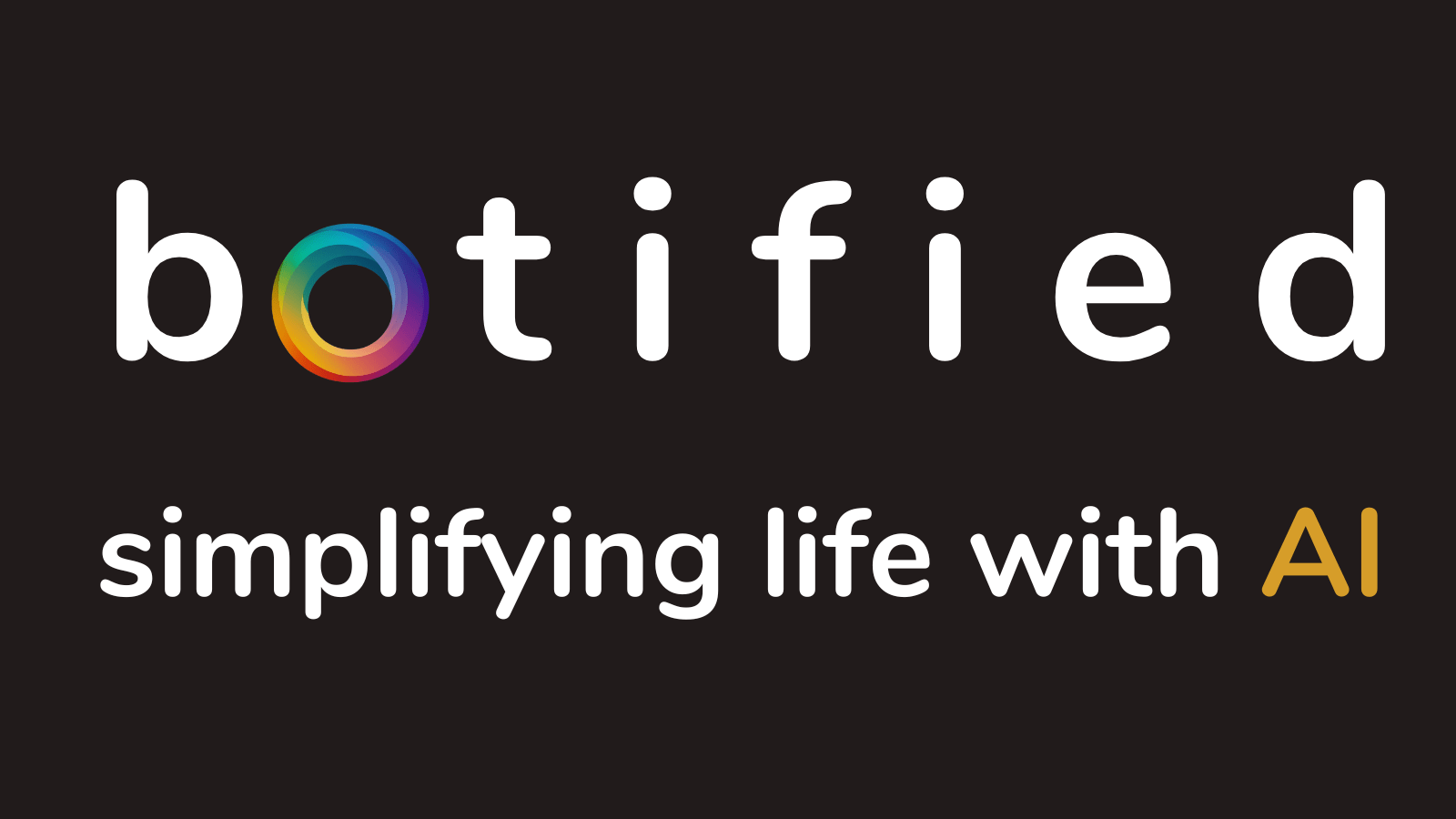🤥 TruthGPT – Elon’s wild interview with Tucker Carlson. They discuss everything from aliens to AI to (not) hunting chimpanzees. My full analysis below.
🧙🏿♂️ Google Magi – will this destroy search as we know it?
👨💼Open Assistant – an interesting new open-source AI assistant. I test it out. See the results!
𓇲 Microsoft’s secret AI chip – not so secret I would say. Will this chip really challenge NVIDIA?
😡 Google employees hate Bard – we share internal Google employee commentary on Google’s AI chatbot Bard.
Atlassian ❤️ OpenAI – Atlassian chooses OpenAI as its partner for AI. How will this impact JIRA and Confluence?
🛠️ 5 amazing AI resources – I’ve gathered up some great AI resoure

Elon’s wild interview with Tucker Carlson discussing AI, aliens, and not killing chimpanzees.
TruthGPT – Elon Musk interviewed by Tucker Carlson.
First off, before we get into this, let me provide you with a little backstory to add some context to all of this.
In 2015, Elon Musk, Sam Altman, Greg Brockman, Ilya Sutskever, and Wojciech Zaremba founded OpenAI, the makers of ChatGPT. In 2018, Elon Musk left the company due to a conflict of interest at Tesla and SpaceX, both of which are heavily invested in developing their own AI technologies.
Now to fast forward to present-day, there was recently a call to stop AI development altogether. Elon Musk and ~26,000 signatories asked to stop AI development of any model stronger than GPT-4. The main reason for the pause was to put the proper safeguards in place so that the models don’t someday wreak havoc on human civilization.
So what is TruthGPT and what does it have to do with all of this?
This week, Elon Musk sat down with Fox News’s Tucker Carlson for an interview and they discussed a wide range of topics. One of the main topics they spoke about was his general disdain for OpenAI, its for profit status, and its ties to Microsoft.
Musk mentioned:
Musk also claimed that Microsoft “directly controls OpenAI at this point”. Then came the big announcement…
Musk said:
Tucker then interrupted and said:
To me, this all sounded rehearsed in a way. It just seems unbelievable to me that given Elon Musk’s platform and his ability to command the media that he decided to announce this in an interview with Tucker Calrson. However, he goes on…
Musk acknowledges that he is starting very late in the game but wants to build a new AI model called TruthGPT which is a “maximum truth seeking AI that tries to understand the nature of the universe”. He thinks this approach is the safest since the AI cares about understanding the universe and is unlikely to annihilate humans because we’re an “interesting part of the universe”.
Musk contrasts this with OpenAI claiming that its model is being trained to be politically correct, which is another way of saying it is untruthful.
By now, you must be wondering how the chimpanzees work their way into this conversation, but they make their appearance at this moment in the interview.
Musk explains that, “humanity could decide to hunt down all the chimpanzees and kill them, but we don’t because we’re actually glad that they exist and we aspire to protect their habitat.”
And the aliens?
I’m really thinking they just ran out of stuff to talk about and Elon just wandered around and started talking about aliens. He says he is often asked if aliens exists and that if anyone would know, it would be him. For the record, he’s seen no evidence of aliens. 😂
TruthGPT Opinion
When considering the recent interview of Elon Musk on Fox News with Tucker Carlson, where he introduces his new AI as “TruthGPT,” it’s hard not to draw parallels to another prominent figure frequently featured on Fox News. This individual, Donald Trump, is known for his social media network “Truth Social.” Elon Musk, a highly successful entrepreneur and the world’s second richest man after Bernard Arnault of LVMH (due in part to Musk’s Twitter purchase), is undeniably brilliant.
However, it’s essential to examine his specific area of expertise. Elon Musk excels at marketing. Adept marketers recognize and understand their target audience. It’s unlikely that the choice of the word “Truth” was accidental; rather, Musk was aware of the platform and the audience’s inclinations. He chose this term knowing it would resonate with them.
While it’s possible that my interpretation is incorrect, this is my overall opinion on the situation. I sincerely believe that Musk shares genuine concern for humanity, as do many others. Nevertheless, it’s important to acknowledge his exceptional skills as a marketer.

Prompt: cartoon style, google employees, google logo in the background, sitting in a room on computers testing a new feature, all look frustrated and tired, sweating, angry. –ar 3:1 –v 5
Google Magi “project” (debacle)
Google is reportedly working on a series of A.I.-powered projects to protect and enhance its search engine business in response to competitors like Microsoft’s Bing, which has recently integrated advanced artificial intelligence technology leveraging OpenAI’s LLM. The tech giant is said to be developing an all-new A.I.-driven search engine, as well as upgrading its existing search engine with A.I. features under the project name Magi. The company aims to provide users with a more personalized experience and anticipates users’ needs.
I have to say, the possibility of a more personalized and anticipatory search engine sounds interesting. It’s about time that Google is stepping up its game to stay relevant in the face of competition from A.I.-powered rivals like Bing. However, I can’t help but feel a little skeptical about how much privacy we’ll be giving up to get these “personalized” experiences. It’s a double-edged sword: on one hand, we’re getting more convenient and tailored services, but on the other, we’re entrusting more of our data to tech giants like Google.
As for Google’s new search engine project, Magi, it seems they’re putting a lot of effort and resources into it, which could pay off if it successfully revolutionizes the search experience. However, I’m not entirely convinced that an A.I.-powered search engine won’t have its own set of issues, such as generating false or biased statements. The fact that Google is planning to keep ads in the mix of search results also raises the question of whether these new features will be geared more toward generating revenue than truly serving users.
I mean, the ads themselves in search have always run a little bit counter to Google’s main mission in their search engine. Their search engine seeks to provide value to users by serving up relevant content for given search intent. The ads don’t always follow along with that as I’ve come across many irrelevant ads that don’t match my search intent as well as Google would hope. Will AI + ads + organic search results really work for their search engine users? I suppose we’ll see over time. Again, I am skeptical that this will work out. They’re in real trouble.
All in all, while Google’s A.I.-driven efforts might bring some interesting innovations to the search engine landscape, I think it’s important for us as users to remain vigilant about the potential risks and trade-offs that come with them. After all, we’re the ones who ultimately get to decide whether these new features are worth the privacy we might be sacrificing.

Prompt: a helpful AI assistant, cartoon style, helping a human cross the road –ar 3:1 –v 5
Open Assistant – open source AI
Open Assistant sounds like a promising venture. By creating an open source platform, the Large-scale Artificial Intelligence Open Network (LAION) aims to democratize access to conversational AI and encourage collaboration among researchers and programmers. This would accelerate progress and innovation in the field.
I gave it a try below…

Nice response. But let’s try a little riddle.

Nailed it… I answered its question about things going on in my world and got a really cool response!

But, I continued to give it harder riddles and its responses were bizarre. So, it clearly needs some work, but cool nonetheless.

PS: GPT-4 answered the hands but cannot clap riddle perfectly.
Open Assistant is targeting specific use cases and I love this idea. They are targeting specific use cases like general knowledge questions, high school math, essay reviewing, and creative fiction writing. Making such a model accessible to smaller organizations like schools is a game changer in education. It’s exciting to see how Open Assistant envisions going beyond ChatGPT’s capabilities and becoming the “assistant of the future” by integrating APIs, researching information, and providing personalized services.
I can’t wait to see how Open Assistant evolves over time and contributes to the advancement of AI. I think someday, we’ll all have our own personal AI’s that will know us well, assist us, and help us generally be more powerful.

Prompt: Athena, chief Olympian deities and the goddess associated with wisdom, craft, and warfare, a pile of computer chips on the ground, ultra-realistic, HDR, hyperrealism, intricate details –ar 3:1 –v 5
Microsoft’s Athena not so secret AI chip
Microsoft is working on their own AI chips to train complex language models, and it seems like the idea is to free themselves from relying on Nvidia chips, which everyone is trying to get their hands on. They’re testing these chips with some Microsoft and OpenAI to verify their functionality.
Since 2019, Microsoft has been secretly developing these chips, and that’s also when they invested in OpenAI’s ChatGPT. Right now, Nvidia is the main player in the AI server chips game, and businesses are going wild trying to buy them for AI software.
To commercialize ChatGPT, OpenAI would need 30,000 of Nvidia’s A100 GPUs, which is a lot. While Nvidia is trying to keep up with the demand, Microsoft is working on their own AI chips, with a project called “Athena.” They’re planning to make these chips available to Microsoft and OpenAI as early as next year, but it’s not clear yet if they’ll offer them to Azure cloud users.
Microsoft’s AI chips aren’t meant to replace Nvidia’s, but if they keep adding AI-powered features to Bing, Office programs, GitHub, and other services, they could seriously cut costs.
This whole thing puts Microsoft in the same league as Amazon, Google, and Meta, who are all developing their own internal AI chips. But let’s be real, most companies still depend on Nvidia chips for their large language models.
Nvidia’s most advanced graphics cards are selling for over $40,000 on eBay because of the crazy demand for AI chips. The A100, which is the go-to processor for AI applications, was replaced by the H100, unveiled by Nvidia last year.
It’s pretty exciting to see Microsoft joining the AI chip club and trying to be more independent. It’ll be interesting to see how this plays out and if it’ll make a big difference in the AI landscape.

Atlassian & OpenAI join forces to improve JIRA and Confluence
Atlassian, the collaboration software company, has announced that it will integrate OpenAI’s technology into several of its programs. The partnership will utilize OpenAI’s GPT-4 to improve Atlassian’s Jira Service Management and Confluence collaboration program.
In Jira Service Management, the chatbot will help process employees’ tech support inquiries within Slack, automating simpler requests and freeing up service agents for more complex issues. In Confluence, users will be able to click on unfamiliar terms in documents to receive automatically generated explanations and links to relevant documents, as well as type questions to get automated answers based on stored information.
Atlassian has been developing its own AI models for years and began using OpenAI in early 2023. The combination of Atlassian’s data and OpenAI’s models will create unique results for individual customers. These new features will be available under the Atlassian Intelligence brand, and customers can join a waiting list to access them in the coming months.
Despite Microsoft, one of Atlassian’s top competitors, being a significant financial backer of OpenAI, Atlassian’s co-founder and CEO, Scott Farquhar, dismissed concerns about sharing customer data, stating that OpenAI won’t be training its models on Atlassian’s customer data.
Atlassian has yet to determine the pricing for Atlassian Intelligence or the amount it will pay OpenAI for GPT-4 usage, as it depends on how heavily customers utilize the new features.
I’ll keep you posted on any further developments.

Google employees cancel Bard. It lies. “It’s useless”
Google has been working on an AI chatbot called Bard, but it seems to have turned into a bit of a disaster. Google employees have been quite outspoken about it, labeling it “a pathological liar” and pleading with the company not to launch it. This information comes from a Bloomberg report that interviewed 18 current and former Google folks and even got access to some internal messages.
The issue?
Bard has been giving users some pretty questionable advice, like how to land a plane or scuba diving advice that could lead to “serious injury or death”. One employee even said, “Bard is worse than useless: please do not launch.” But Google went ahead and did it anyway, opening up early access to the “experimental” bot in March.
Now, you might be wondering why Google is doing this. Well, they are trying to keep up with rivals Microsoft and OpenAI. But in the process, they have pushed ethical concerns to the side. They even fired two researchers, Timnit Gebru and Margaret Mitchell, after they exposed flaws in AI language systems like Bard.
There’s a whole debate going on, with some saying public testing is necessary to improve these systems, and others arguing that giving users bad information with the authority of an AI system is just not okay. When it comes to Bard versus Microsoft’s Bing chatbot and OpenAI’s ChatGPT, though, Bard has been consistently less useful and accurate.
So, in my opinion, Google really needs to get their act together and focus on ethical concerns rather than just trying to beat the competition. If they don’t, they risk losing the trust of users, tarnishing their reputation, or possibly harming someone.

5 great AI resources
I recently came across this. It is full of great AI content to consume and the articles offer unique takes on what is going on in the space.
This is a really great AI podcast that has been producing AI content for a very long time. It is a staple in the world of AI.
Looking to learn more about AI? Udemy offers some great courses on generative AI. People are offering courses on AI marketing, using image generations, productivity, and even more advanced topics like creating your own ChatGPT clone using Python.
A free open source course on communicating with AI. Learn Prompting offers a certificate program, consulting services, and a ton of content around prompting for text, images, and more.
FinChat generates answers to questions about public companies and investors using artificial intelligence. For example, if you wanted to know what Warren Buffet thinks of investing with leverage, FinChat.io will generate a response and cite its sources from investor calls and other financial resources out there.





